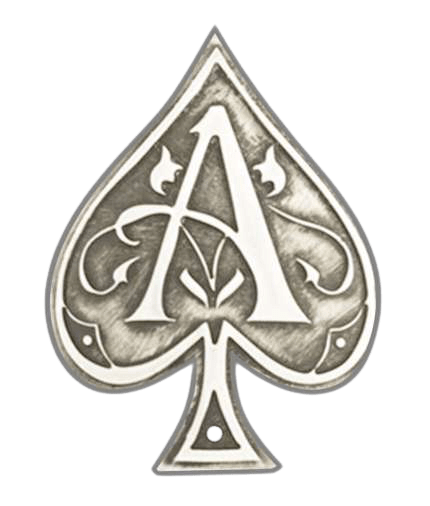Exchange-Traded Funds (ETFs)
Exchange-traded funds which are commonly known as ETFs are the flock of securities such as bonds, stocks, gold, foreign currencies, oil, etc. These funds/collections of the securities are traded like shares on the leading stock market. For India, it is traded on BSE and NSE. The ETF stocks are the funds that are owned indirectly by the investors without any direct claim.
The basic nature of the ETF is like the stock but the value it holds is effective. Although it is kind of a mutual fund yet it holds a difference. Unlike mutual funds, the value of the ETF stock changes throughout the day. In simple words- Exchange-traded funds invest your money in the large pool of stocks instead of individual/ particular stock. ETFs are listed on the exchanges, therefore can be traded like stocks.
Why should you invest in ETFs instead of individual stock/stocks?
Exchange-traded funds are the basket of stocks that are pre-defined. The basket is formed to track the indices of the stocks. So if you want to purchase the Nifty50 index stock, you can buy the Nifty 50 ETF instead of purchasing individual 50 stocks.
Benefits of Investing in Exchange Traded Mutual Funds:
Exchange-traded funds are the diversified portfolio of securities and can be traded in the stock market. There are many benefits to invest in ETFs:
- Instead of tracking the record of a single/ multiple company's equity performances- exchange-traded funds diversify equity investment into different companies.
- ETF investments dilute the risk. ETFs are invested only in the best-performing companies listed on the stock exchange.
- In the ETF, if one asset/stock is underperforming, the portfolio is balanced by the growth of other stocks/ assets.
- ETFs investment allows easy entry and exit because it is traded on the stock market.
- The change in the ETF value is observed instantly. Thus the ETF can be bought and sold anytime throughout the day.
- The liquidity in exchange-traded funds is higher than the mutual funds.
- The ease of liquidity allows you to change the security/ investment choice in case any particular asset in the ETF is/is underperforming.
ETF investment Liquidity:
ETF liquidity compared to the mutual funds have high liquidity thereby making this investment product popular. This makes ETF popular and convenient when it comes to cash flow necessity.
ETF Taxation:
Index ETFs and sectoral ETFs are treated as equity-oriented schemes for the purpose of taxation. Accordingly, short-term capital gains made on ETF units held for less than one year will be taxed at 15%. Long-term capital gains on units held for more than one year will be taxed at 10%, without indexation benefit. Long-term capital gains upto 1 lakh are not taxed.
For taxation purposes, gold ETFs and international ETFs are taxed as non-equity funds. Short terms gains made on ETF units held for a period of less than 36 months are taxed as per the applicable income tax slab rate. Long-term capital gains on units held for over one year are taxed at 20% after indexation benefit. Dividends earned by the ETF investor enjoy the tax exemption from the exchange-traded funds' schemes.
Returns on ETF
The Dividend earned is regularly distributed to ETF holders. Performance of underlying assets determines the performance of the fund. For eg. an index fund will give good returns if the Nifty / Sensex stocks perform well.
EXCHANGE TRADED FUND (ETF)
What is ETF?
Exchange traded Fund is a basket of stocks which have a common character. They could be all index stocks or PSU stocks or Energy shares or IT shares etc.
It is not possible for the investor to buy all 50 stocks in NIFTY index, but if someone were to collect money from several investors and buy all the shares in same proportion as index or an altered ratio then an investor needs to buy just one unit of the fund and get a flavour of all the index stocks.
ETF is a popular for government disinvestment. Government has floated an open-ended fund i.e. It can go on accepting money from the investors in the fund. The Navratna stocks are sold to the fund by the government, this helps in keeping the PSU price stable and government selling happens without a crash in the price of PSU.
Safety
Generally, the stocks underlying the ETF determine the risk of the fund. Risk is reduced due to presence of large number of stocks in the basket. However, if the underlying stocks are small cap or mid cap there is higher amount of risk. Market fluctuations and volatility in markets create risk to the fund.
Liquidity
These funds are tradeable on the exchange. However, except for a few popular ones there is poor liquidity in the ETF. Exit is only when the fund is closed. Some fund managers do market making by providing liquidity to the Fund
Returns
The Dividend earned is regularly distributed to ETF holders. Performance of underlying assets determines the performance of the fund. For eg. an index fund will give good returns if the Nifty / Sensex stocks perform well
Taxation
The Dividend is now taxed in the hand of investor and there are capital gains on sale / redemption of the EFT Units
How to invest?
If you do not have a KYC account with us open one or already have account, you can buy ETF in open market.
Just for information
Government disinvestment is done through ETF. These issues are good investment opportunities since government has been providing discounts on ETF issues
Frequently Asked Questions on ETFs:
Analyzing the difference between ETFs and Mutual funds based on the following parameters:
| Parameter | Mutual Fund (Open-Ended) |
Mutual Fund (Closed-Ended) |
Exchange-Traded Fund (ETF) |
|---|---|---|---|
| Fund Size | Flexible | Flexible | Flexible |
| NAV | Daily | Daily | Real-Time |
| Liquidity Provider | Fund itself | Stock Market | Stock Market / Fund itself, either of them. |
| Sale Price | At NAV plus load, if any | Significant Premium / Discount to NAV | Very close to the actual NAV of the Scheme |
| Availability | Fund itself | Through Exchange where listed | Through Exchange where listed / Fund itself. |
| Portfolio Disclosure | Monthly | Monthly | Daily/Real-time |
| Uses | Equitizing cash | Equitising cash | Equitising Cash, Hedging, & Arbitrage |
There are three major types of ETF investments available for investors:
- Gold ETF: It aims to track the gold price in the Indian market. Gold ETFs are traded on the listed exchange similar to equity trading.
- Equity ETF: It is the stock basket reflecting the index composition- similar to S&P BSE Sensex.
- Liquid ETF: It is the money market ETFs whose objective is to provide money market returns to the investor. The first money market ETF in the world is BeES- launched by the mutual fund benchmark.
Please note: All these ETFs are traded on the BSE & NSE.
Following individuals/groups are eligible to invest in ETFs:
- Individual (Resident of India/ NRI)
- Institutions
- Corporate
There are two ways to buy and sell exchange-traded funds. For any investor it is important to consider the following points before investing in ETFs:
- To open a trading account with the broker/sub-broker.
- To hold the ETF units, a DEMAT account is a must.
Once the trading & demat account is opened after completing the KYC, you can then discuss the trading specifications with the investmentz.com
There's no bar or range, to begin with, the ETF investments. Ensure to cover the price of the shares, & commission fees if any.
Exchange-traded funds consist of the high-performing companies' stocks in the basket. The stocks in the ETF determine the risk factor of this investment. Because ETF investment diverges, the risk is minimal compare to other equity-related securities. The risk in any investment is measured by market volatility and fluctuations. Thus the risk involved in the ETF investment is little.






